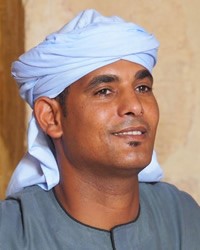Arab, Arabic Gulf Spoken in Qatar

Photo Source:
Hella Nijssen - Pixabay
|
Send Joshua Project a map of this people group.
|
| People Name: | Arab, Arabic Gulf Spoken |
| Country: | Qatar |
| 10/40 Window: | Yes |
| Population: | 611,000 |
| World Population: | 7,562,600 |
| Primary Language: | Arabic, Gulf |
| Primary Religion: | Islam |
| Christian Adherents: | 0.50 % |
| Evangelicals: | 0.08 % |
| Scripture: | Portions |
| Ministry Resources: | Yes |
| Jesus Film: | Yes |
| Audio Recordings: | Yes |
| People Cluster: | Arab, Arabian |
| Affinity Bloc: | Arab World |
| Progress Level: |
|
Introduction / History
Within the Arabic language there are numerous dialects and groups of dialects. One major group is given the general term “Arabiya “or “Gulf Arabic” since it is spoken in Saudi Arabia and the nearby Gulf states along the edges of the Arabian Desert. This includes not only Saudi Arabia but also Yemen, the United Arab Emirates, Qatar, Kuwait and southern Iraq.
What Are Their Lives Like?
Life for Gulf-spoken Arabs in the desert involves a harsh existence with few creature comforts. They live the Bedouin lifestyle by preference. Others live in Qatar City where they have urban comforts like electricity and running water. Some of these are shopkeepers. At the top are oil executives. Those who live the Bedouin lifestyle speak a different dialect than those who live a settled lifestyle.
Reflecting the influence of their Sunni Muslim religion, the Gulf-spoken Arabs practice endogamous marriages (marriage within a small social circle). Inheritance is patrilineal (inherited by the next male family member). Gulf-spoken Arab clothing is designed for the harsh climate. It is made of lightweight, light-colored fabric and is also loose-fitting, allowing for the circulation of air.
What Are Their Beliefs?
The founding of Islam in the seventh century profoundly altered the course of Saudi history. Today, the great majority of Gulf-spoken Arabs in Qatar are Hanbalite (Wahhabi) Muslims. In the mid-1700s, Mohammed ibn Abd al-Wahhab formed his fundamentalist sect, and today, they see themselves as the preservers of the true Islamic faith. The Wahhabites reject all innovations introduced into Islam after the third century of its existence and are very traditional in their Islamic practices. Their desire is to maintain and propagate what they see as the "true" path of Islam.
What Are Their Needs?
There are very few Christ followers among Gulf-spoken Arabs in Qatar. A profession of faith in Jesus may cost a person his family, honor, job or even his life. Evangelization of this group will be challenging, due to the nature of the Arabs' lifestyle and belief system. Prayer is the key to reaching them with the gospel.
Prayer Points
Pray that soon Gulf-spoken Arabs in Qatar will be disciple others, leading them to a close walk with Jesus Christ.
Pray for loving ambassadors for Christ to go to Qatar with the gospel.
Ask God to raise up a mighty army of prayer warriors who will intercede for Gulf Arabs.
Pray for a strong network of Christian fellowships will be raised up among Gulf Arabs that will be salt and light in Qatar.